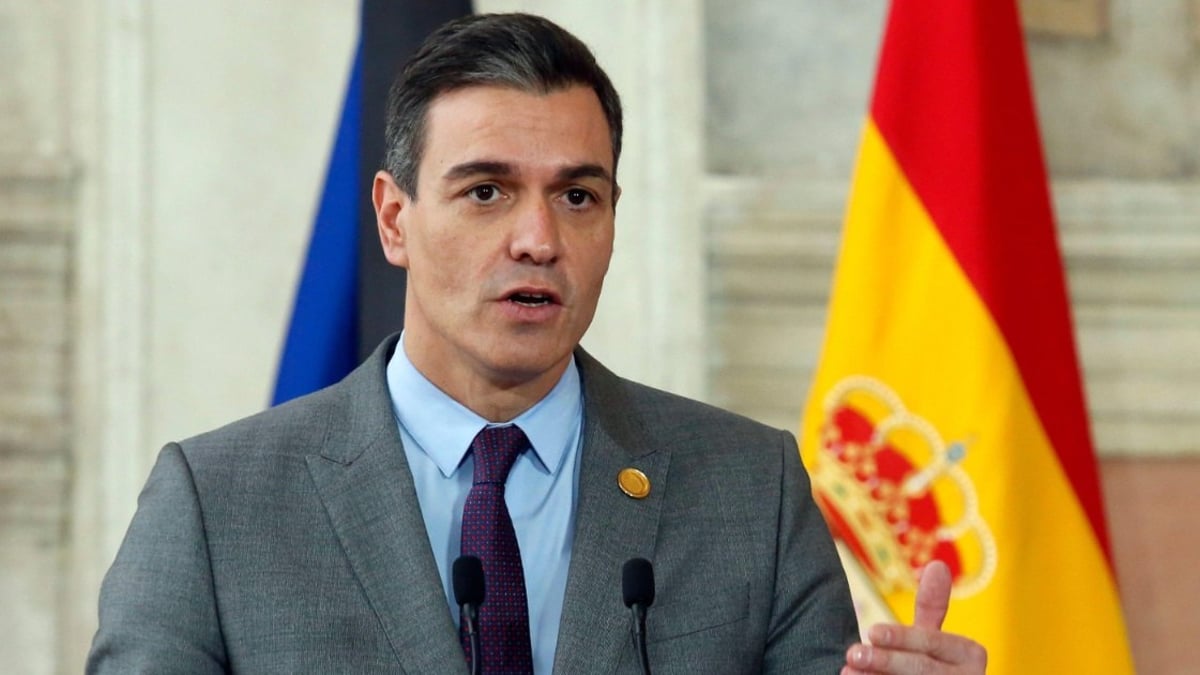Spanish Election Betting: Feijoo Favourite In Race With Prime Minister Sanchez

Betting sites are preparing to pay out on Alberto Nunez Feijoo winning the Spanish election this month following a disastrous campaign for prime minister Pedro Sanchez.
Both the markets and the polls indicate that Sanchez’s Spanish Socialist Workers' Party (PSOE) is heading for a historic defeat after just four years in office.
Sanchez chose to call a snap vote six months early in June, in the hope of slowing the rate of support for Feijoo’s People's Party (PP) and limit the damage done to his own side.
But the latest data suggests his gamble hasn’t worked. In fact, PP are on course to win even more seats than they were projected to have gained had the election taken place as expected this November.
| test | one |
|---|---|
| shane | two |
| test | test |
| three |
Bettors have been monitoring the politics odds closely and many will have been surprised to see opposition leader Feijoo way ahead of his rival when the election was called.
Yet since then PP have just about maintained their lead over PSOE, which has caused bookies to cut their odds further on a Feijoo victory.
Not only are PP now the most popular party but the nationalist Vox party doubled their vote share at the recent local elections.
Sanchez, aware of the swelling tide against him, chose to call a snap election in the hope of recapturing support over an eight-week campaign period.
He has made some gains but UK bookmakers reckon his gamble hasn’t paid off.
Spanish Election Betting
According to politics betting sites, Sanchez is now 9/2 to win the upcoming Spanish election.
Those odds have expanded from 4/1 over the past three weeks and highlights the fact he has not recovered enough ground in the polls to viably win this vote.
The implied probability of those odds means Sanchez now has an 18.2% chance of winning the election. He had a 37% chance when the snap election was originally called.
Feijoo, meanwhile, has seen his odds come in from 3/10 two weeks ago to a new record low price of 1/8.
The jump means bookmakers now reckon Feijoo has an 88.9% chance of swooping to power. Those odds actually bounced as low as 1/10 six days out from the election before springing back.
The big reason for the odds shift is the timing of the election. We’re now just a few days away until voters head to the ballot boxes, and PSOE have struggled to make up ground for much of the past month.
Recent polling data suggests the conservative PP will beat the socialist government but will need the support of Vox to govern effectively.
Pollsters reckon PP will fall around 20 seats short of the 176 needed to secure a majority in the 350-member lower house.
Vox are expected to get 36 seats, meaning a conservative coalition should just be enough to push PP over the line.
So, while the outlook looks better for PSOE than originally expected, there isn’t enough time to make up the deficit.
That, at least, is what UK bookmakers are banking on after cutting their odds on Feijoo defeating Sanchez. This is reflected in the betting data, with 72% of all bets backing the opposition leader.
Who Will Win The Spanish Election?
One could argue Sanchez has seen the writing on the wall for months, and has chosen to jump ahead with a snap election rather than wait another six months when his party’s chances of winning will be even worse.
Here, at least PSOE have a chance of forming a coalition with other left-leaning parties. But betting apps and pollsters all think this is going one way.
Feijoo should win enough votes to hold power here. It’s unlikely he will lead PP to a majority victory in itself, but he’ll have the support of a surging Vox to get over the line - even though the majority of voters don’t want Santiago Abascal anywhere near the seat of power.
It’s this proposition that Sanchez is hoping will kill the conservative vote. The right wing won a fair few cities at recent local elections and this has only intensified the scrutiny on Vox.
The gamble Sanchez hopes will pay off is that by triggering an election when Vox and right-wing populism is in the headlines, he hopes to draw votes back to the centre ground.
Do centre-right conservatives really want to vote for PP if they open the door for Vox?
It’s a tactic that worked for Portugal’s Antonio Costa, who last year warned a vote for mild conservatism would pave the way for extremism.
This gamble only adds to the chaos of this snap election. It’s being held in July when many Spaniards are on holiday, and the postal voting system is a mess.
It may be that the country has to vote during another summer heatwave that causes disruption at polling stations.
Sanchez hopes the chaos will aid his chances of winning. Feijoo hopes he can secure a majority without the need to flirt with the populist right. And new betting sites reckon it’s the latter who is on course for victory right now.
How Spanish Elections Work
Spain’s next general election takes place on July 23. Spaniards will vote for an entirely new lower chamber, as well as around 80% of the seats in the senate.
Whichever party holds a majority in the Chamber of Deputies will form a government, and its leader will be the next prime minister.
Spain has for the last four years been ruled under a coalition between the PSOE, Sumar and Unidas Podemos. It might be the case that these parties come together again to form a centre-left bloc.
However, it’s also possible that the right-wing PP will either win a majority or form a coalition with the populist Vox.
There are 350 constituencies across Spain and counting takes place usually overnight. It’s often the case that exit polls indicate clearly which party has won a majority.
Sixty-nine of Spain’s constituencies are based in either Madrid or Barcelona, while other big regions include Valencia, Alicante, Malaga and Seville.
Three televised debates took place in mid-July, with Feijoo coming out on top in almost all opinion polls. Feijoo’s one-on-one debate with Sanchez attracted almost six million viewers.
Stay In The Loop With Free Bets, Insider Tips & More!
Live Betting. Sports Promos. Sent Weekly.

















